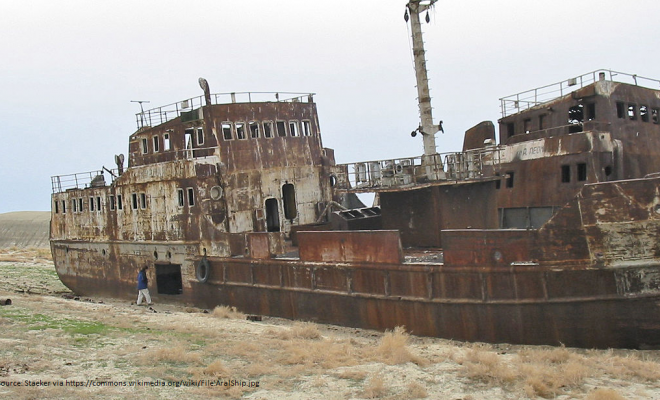A Critique of Ecosocialism

I wrote this commentary in 2011 for my book, TANSTAAFL: A Libertarian Perspective on Environmental Policy. With ecosocialism enjoying a resurgence, energized by the Green New Deal, it retains its relevance.
There are many who see capitalism as the source of all environmental ills and socialism as the path to sustainability. That school of thought is often called ecosocialism. What are the ideals of ecosocialism, and what is the record of socialism and the environment in the real world?
One source for the ecosocialist critique of capitalism is the Belem Ecosocialist Declaration, which was the product of a conference held in Paris in 2007. The declaration sets out a simple chain of cause and effect: Capitalism requires profit, profit requires growth, and growth means environmental destruction. Here are some excerpts:
Humanity today faces a stark choice: ecosocialism or barbarism. . . . We need no more proof of the barbarity of capitalism, the parasitical system that exploits humanity and nature alike. Its sole motor is the imperative toward profit and thus the need for constant growth. . . . Capitalism’s need for growth exists on every level, from the individual enterprise to the system as a whole. The insatiable hunger of corporations is facilitated by imperialist expansion in search of ever greater access to natural resources . . . . The capitalist economic system cannot tolerate limits on growth; its constant need to expand will subvert any limits that might be imposed . . . because to do so would require setting limits upon accumulation — an unacceptable option for a system predicated upon the rule: Grow or Die!
Let’s be right up front about it: The critique is not all wrong. The “Drill, Baby, Drill!” version of capitalism, with its throughput mentality and its contempt for environmental values, provides ample fodder for the ecosocialist critique. Still, the ecosocialist critique of capitalism sets off flashing red lights. To see why, we need to ask two crucial questions:
- Which has been more environmentally destructive in practice, capitalism or socialism?
- Which system, capitalism or socialism, is more receptive to the changes that need to be made to achieve long-run environmental sustainability?
Back in the days of the Soviet Union, it was evident, to anyone who cared to look, that the world’s preeminent experiment in socialism had serious environmental problems. Marshall Goldman chronicled those problems in his 1975 book, Spoils of Progress. In the 1980s, Mikhail Gorbachev’s policy of glasnost, followed in the 1990s by the collapse of the Soviet Union, made access to Soviet environmental information easier for later authors like Murray Feshbach and Alfred Friendly, Jr., who provided a thorough survey in Ecocide in the USSR.








